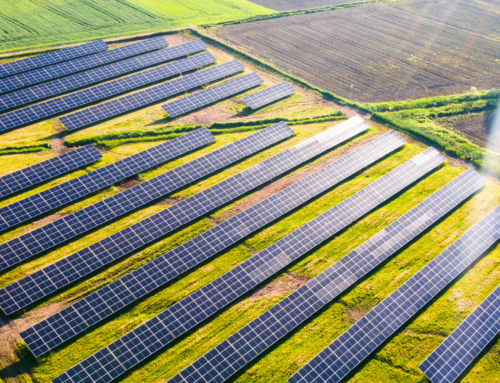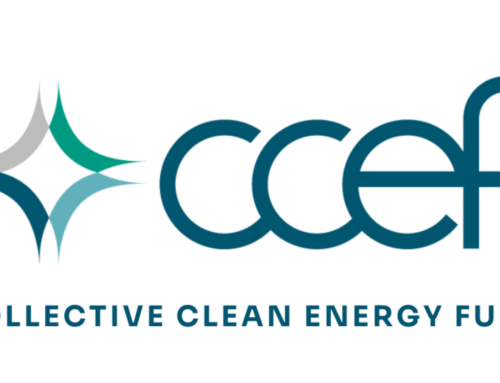DENVER, COLORADO, USA, May 13, 2024 / EINPresswire.com / — CCEF, a non-profit community lender that fills financing gaps for clean energy projects in the residential and business sectors, recently published its 2023 annual impact report following the organization’s second full year of operations. The report highlights its growth to seven new counties in Colorado, resulting in an overall annual reduction of greenhouse gas emissions of 11,500 MT CO2e in 2023 — doubling the amount achieved in 2022.
CCEF also dramatically increased its lending capacity from $30 million of assets under management at the end of 2021 to more than $90 million today, with more than 55% of the capital deployed in low-income and disadvantaged communities. In 2023, CCEF:
- Financed 900 residential loans that advanced energy efficiency, renewable energy, and the electrification of homes across Colorado
- Executed 17 commercial loans for various building types and clean energy technologies
- Supported over 400 affordable housing units with improved energy performance and living conditions
- Launched a new financing initiative, called Electrify and Save, a utility tariff on-bill repayment program designed to increase access to clean energy for residents in rural Colorado and beyond
“I’m overcome with feelings of pride and gratitude for what our team has accomplished,” said Paul Scharfenberger, CCEF’s Chief Executive Officer. “These results tell me that our team is executing on our mission to accelerate the equitable adoption of clean energy across the state and advancing towards our vision of a just and equitable transition to a decarbonized economy.”
CCEF expanded its footprint in Colorado in 2023 by financing commercial projects across seven new counties. Over half of these projects were in the Justice40 Initiative communities or in Low Income and Disadvantaged Communities (LIDACs). The project measures spanned solar, geothermal, emergency replacement, and energy efficiency equipment. CCEF provided low cost financing at well-below market interest rates to help borrowers of all types achieve energy cost savings.
In 2023, CCEF completed its first pilot project for the utility tariff on-bill repayment (TOBR) program with the Norwood Pinion Park development. TOBR is a mechanism by which a resident or business owner may elect to install certain energy upgrades to their property at no upfront cost; they then repay the cost of the measure and installation via a voluntary tariff (a line item charge) on their monthly utility bill. The term “repayment” included in TOBR denotes the fact that a third party (CCEF) provides the upfront funding for the installation. Through careful modeling and utilization of EPA-recommended software REM/Rate, new homeowners in Norwood Pinion Park are expected to save roughly $7,681.40 over the 20 year term of the financing.
Earlier this month at the Colorado State Capitol, Governor Jared Polis expressed enthusiasm for the Electrify and Save On-Bill Repayment Program, a partnership between Tri-State Generation and Transmission Association, its member cooperatives, and CCEF. This partnership provides a simple, affordable, accessible and scalable finance option that will enable Coloradans to benefit from utility cost-saving projects. The U.S. Department of Agriculture (USDA) recently approved $75 million in loans to Tri-State through the Rural Energy Savings Program (RESP); of that total, $50 million in loans will be used to support the On-Bill Repayment Program.
Looking ahead, CCEF is excited to work with the Coalition for Green Capital (CGC) to access and deploy its sub-recipient allocation from the National Clean Investment Fund (NCIF) award from the Greenhouse Gas Reduction Fund. With this funding, CCEF will expand its offerings across EPA Region 8 (Colorado, Utah, Wyoming, Montana, South Dakota, North Dakota, and 28 Tribal Nations across those states). CCEF will scale its current programming as well as introduce new programming to fill remaining clean energy finance gaps in the market.
“So much more work needs to be done over the coming years and we are under no illusion that the road ahead will be easy,” notes Scharfenberger. “The past two years of working with this team have demonstrated to me that it is possible to achieve vital social objectives while investing in projects that also directly address climate change and reduce harmful pollution.”
About CCEF:
CCEF was born out of a three-year collaboration among the Colorado Energy Office (CEO), the Department of Energy (DOE), and the Coalition for Green Capital (CGC). This collaboration aligned to create CCEF with a shared belief that a specialized, nonprofit intermediary was necessary to identify barriers to financing clean energy projects, bridge the gap between clean energy projects and traditional capital providers, and drive demand for these solutions by performing market engagement and development activities. Learn more at www.cocleanenergyfund.com and follow the organization on Facebook, LinkedIn, and Twitter.
Contact:
Allie Madden
CCEF
714-880-9198







